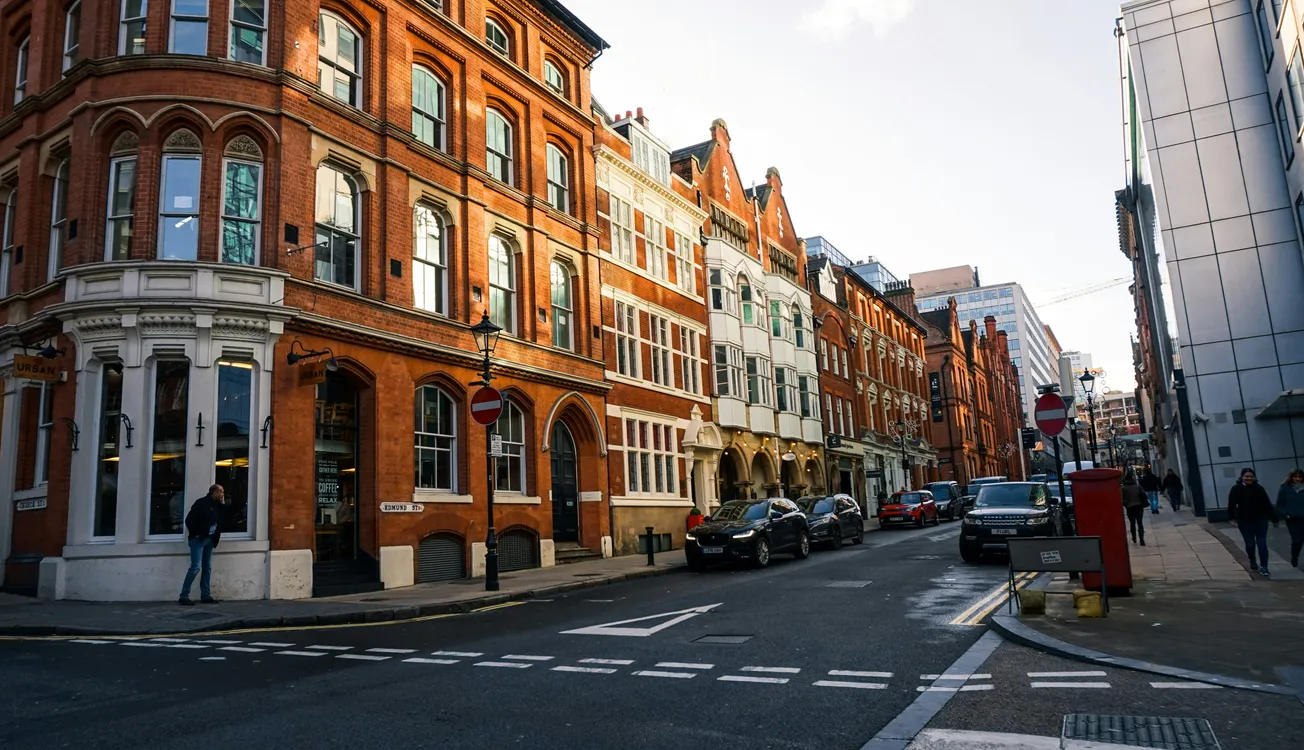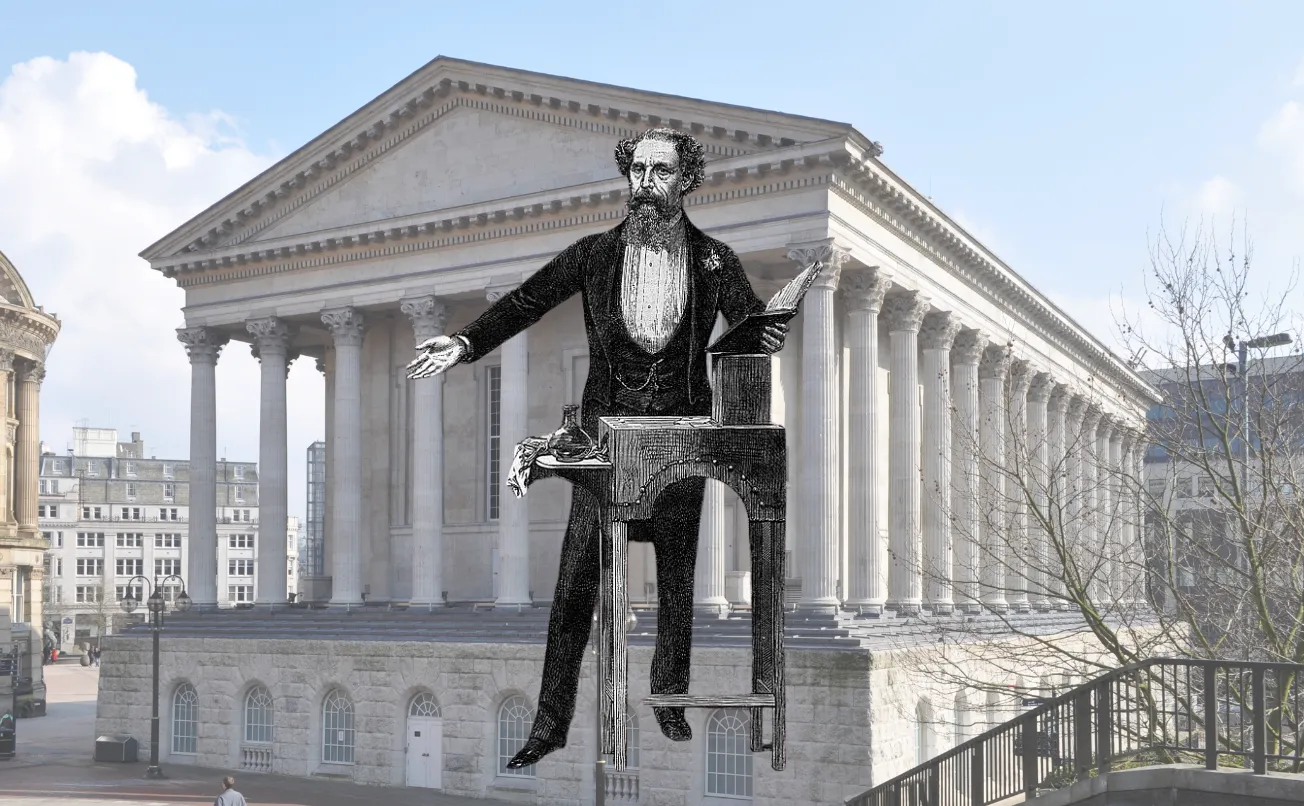Dear Patchers — first things first, an explanation. You may have noticed a reduced schedule on The Dispatch over the past few weeks, please forgive us. After an incredible (but also occasionally somewhat stressful!) 2024, in which the Dispatch grew from a one-person operation to a three-person supergroup, and also broke through the 1,000 paying subscriber barrier in time for our first birthday, we granted ourselves an extended festive break. If your inbox has seemed a little empty of late, that’ll be why. Kate has been in Paris exploring the 19th-century arcades and catacombs (as well as enjoying the crepes and croque madames) while Sam has been enjoying the beaches of Cadiz.
The good news is, we’re now back. From next week normal service will resume, with four pieces a week landing in the inboxes of paying subscribers. However, we didn’t want you to go completely without this week, so today we’re publishing this piece about the legendary nightclub and brand Gatecrasher, created by Birmingham local Simon Raine, which is still revered by its fans (the “Crasher Kids”) but has long been an “industry inside joke”. The piece was first reported by our talented colleagues at The Tribune in Sheffield, but the story straddles both cities.
Despite launching myriad DJ careers and seemingly making money hand over fist, Gatecrasher has allegedly spent decades accruing millions in unpaid debts and continues to add to that tally to this day. According to one source, everyone in the industry has “at least five” stories about Raine. “They’re all quite horrific and always on the same theme too: he ripped me off, he owes me money,” the source says.
That’s the topic of today’s story, which we’ve paywalled halfway down. That’s because we can only do this kind of journalism thanks to our wonderful paying members. If you value a local media that scrutinises companies and institutions across the region, rather than churning out press releases on their behalf, consider signing up today.
Brum in Brief
⚖️ A Birmingham rapper has been convicted for posting a “menacing” video directed at former English Defence League (EDL) leader Stephen Yaxley-Lennon, aka Tommy Robinson. Omar Abdirizak, 31, aka Twista Cheese, denied sending a message of a menacing character contrary to the Communications Act 2003, but he was convicted by Birmingham Magistrates Court after a two-hour trial. Abdirizak denied making direct threats to Yaxley-Lennon.
🗣️ Jess Phillips has hit back at Elon Musk for calling her a “rape genocide apologist” on his social media platform X, saying he should “crack on with this 'getting to Mars'” instead of getting involved in UK politics. The Yardley MP said it was “painful” to see child exploitation become a “political football” while speaking to Sky’s Beth Rigby in an episode of the Electoral Dysfunction podcast which is out in full on Thursday. Musk made the comments after Phillips denied a request for the Home Office to lead a public inquiry into child sexual exploitation in Oldham, saying it should be done at a local level.
🚑 University Hospitals Birmingham Trust has declared a critical incident due to an “exceptional number” of patients with flu conditions needing to stay in hospital. 311 patients have been affected so far and mask wearing has been introduced across departments. Margaret Garbett, chief nurse at University Hospitals Birmingham, urged non-emergency patients to avoid visiting A&E and to use alternatives like the 111 helpline instead. Critical incidents have also been announced at trusts in Liverpool, Plymouth and Winchester.
⚽ Aston Villa has unveiled a commemorative kit in celebration of the club’s 150th birthday. The claret and blue strip has been done away with in favour of a black shirt with a red lion logo. The design is a nod to the team’s past: in 1878 the club adopted black shirts and white shorts and the oldest surviving photo shows the lads in this get up. Interestingly, Villa was the first team in the UK to put a crest on their playing kit, adopting the Scottish lion rampant. Learn more of the history here.
The rise and fall of Gatecrasher
By Victoria Munro
For anyone going clubbing in Birmingham in 2008, the opening of Gatecrasher nightclub on Broad Street was a big deal. The arrival of this spaceship-sized super club was a rise from the ashes, its former flagship and legendary venue in Sheffield having burned down in a freak accident the year before. What younger ravers might not have known was that it was also a homecoming for the brand. In 1993, Gatecrasher was first held as a one-off event at Worcester’s Tardebigge Engine House, organised by Simon Raine, manager of Broad Street’s Baker’s nightclub.
The party was popular and so Raine repeated it, both at Baker’s and several other locations around the West Midlands. But with numerous other nights — like Moneypenny’s and Wobble — offering a similarly hedonistic vibe, he made the decision to take Gatecrasher somewhere where it could really shine. And so Gatecrasher One in Sheffield was born.
It’s clear the club left a strong impression on those who came from far and wide to party there. Alison (not her real name) remembers the three years she worked there as the best of her life. “There was always something crazy going on,” she says, recalling the intense, anything-goes atmosphere of the late 90s that Gatecrasher, more than anywhere else, epitomised. On more than one occasion, she saw a DJ receiving a blowjob in the booth, mid-set.
The club’s regulars and true devotees — the “Crasher Kids” — were instantly identifiable from their lurid spiked hair and intricate outfits, which they sometimes spent weeks putting together, and would proudly wear the Gatecrasher logo to make their allegiance clear.
Getting in was not easy, and not cheap either. Despite a maximum capacity of more than 1,200, the club reportedly once turned away almost twice that many punters in a single night. For those lucky enough to make the cut, entry in 2003 could cost as much as £20, the equivalent of almost £40 today. Unsurprisingly, Gatecrasher One spent years making money hand over fist. Alison says she personally put at least a grand in the till every night she worked and remembers one Thursday night when the bar made around £28,000 in total.

That’s how most people remember Gatecrasher. As a dizzying carousel of drugs, music and money brought to a halt by the devastating 2007 fire that razed the club to the ground. As the institution that helped launch myriad DJ careers and became the spiritual home of the trance genre. Before long, there were Gatecrasher clubs in other UK cities — Leeds, Nottingham and Watford — and even a short-lived expansion to Ibiza.
But, to those in the know, Gatecrasher has long been an “industry inside joke,” as one former employee put it, a joke that only gets less funny as the years go on. “It’s a shame because a brand like that meant so much to people, it shaped their teens and provided the soundtrack of their lives,” says one clubland insider. Like many people quoted in this article, he asked to remain anonymous for fear of reprisals from the company’s notoriously litigious owner. “When you understand the true story behind it all, it’s very sad really.”
The problem, according to everyone I spoke to, is said owner: 59-year-old Simon Raine. “He didn’t like paying people,” claims a former employee from the brand’s Sheffield heyday, even when Gatecrasher should have been making more than enough money to do so. As time went on and profit margins grew thinner, this tendency only became more egregious. Another former staff member who worked for Gatecrasher during its short-lived attempt to take over Area on Burgess Street in 2018 alleges that, at every event Raine attended, DJs still owed their fee “would be circling the venue asking where he was.”
And it wasn’t just those behind the decks that reportedly struggled to get him to cough up. Suppliers, lighting engineers, cleaners, landlords, councils — everywhere money could be owed, it was. This same employee claims there was “a stand-off every week” at Area with irate door staff, that the building’s phones were disconnected because the bills went unpaid and that Raine would only ever “pay what he had to to keep the club open”. Even the rubbish was sorted on the cheap: he allegedly let bin bags pile up in a side room, hiring a skip company to cart everything off once it was full. Before long, Area’s landlord, Sheffield Council, had seized control of the building.
According to Amadeus Mozart (yes, really), co-founder of the Tidy Trax label, everyone in the industry has “at least five” stories about being burned by Raine. “They’re all quite horrific and always on the same theme too: he ripped me off, he owes me money,” he says. “I don’t think you could find one person in the industry with a good word to say about him.” Despite this, Gatecrasher is still organising events and even has one booked in just over two weeks time, although many have good reason to suspect this night won’t take place.

My attempt to contact Gatecrasher through its official Facebook page — the only channel available, since its website and email are both down — went unanswered for days. Eventually, after securing Raine’s personal phone number from a former associate, we received an email that insisted the allegations we put to him reflect “a one-sided perspective that misrepresents several critical aspects” and contain “10%-20% truth and 80-90% BS”. Over a handful of emails back and forth, however, the only thing he specifically denied is being the owner of Gatecrasher, although he refused to name the new owner. “It’s not for me to tell you how to do your job,” he wrote. “If you’re an investigative reporter, you need to find out who owns it.” According to Companies House, Raine is the sole active director of both Gatecrasher Ltd and Gatecrasher Classical Ltd, while his LinkedIn page still lists him as the CEO of the Gatecrasher Group.
“You are a newish publication and I am always keen to assist and support new ventures,” he wrote in an earlier, friendlier email, “especially in Sheffield, as the city was good to me and my businesses.” If we held off for a week, he would be prepared to offer us “a scoop”. However, if we refused to delay publication, he threatened to sue, not only The Tribune, but me personally.
Birmingham deserves great journalism. You can help make it happen.
You're halfway there, the rest of the story is behind this paywall. Join the Dispatch for full access to local news that matters, just £8/month.
SubscribeAlready have an account? Sign In







